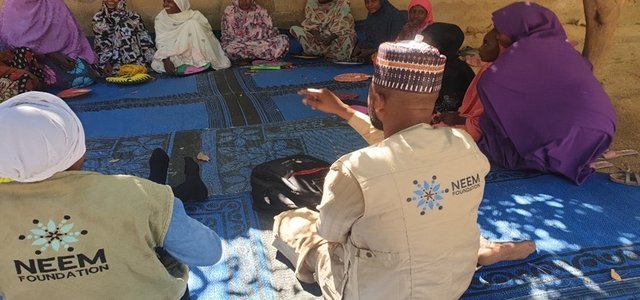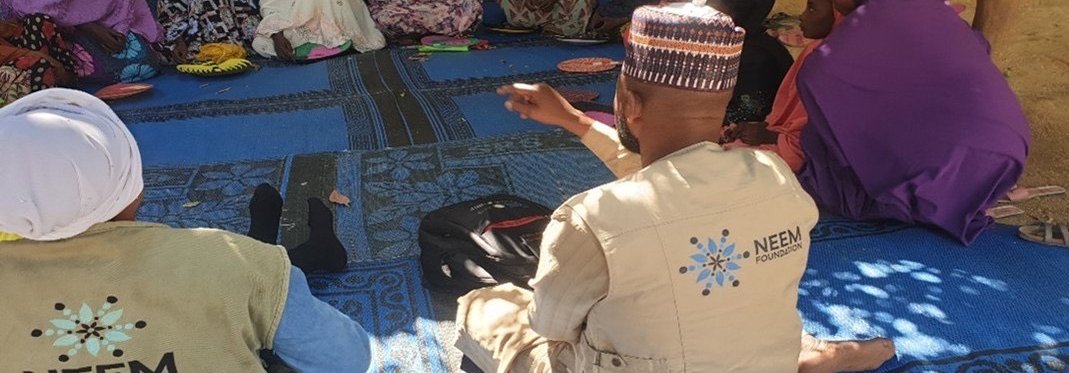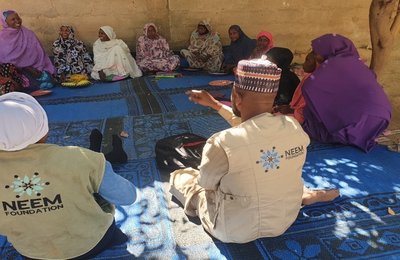“They moved from village to village with their keke to reach us”: building positive peace through counselling in Borno, Nigeria
Discover the impact of a local initiative bringing mental healthcare to villages traumatised by Boko Haram attacks in Borno, Nigeria.
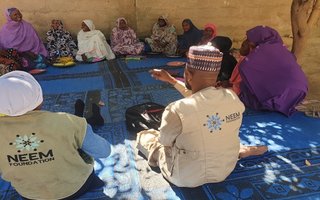
14 April 2014 is a black Monday to indigenes of Chibok, a town in Borno state, north-eastern Nigeria. The terrorist group Boko Haram had launched an overnight attack in Chibok.
That night, the first large-scale student abduction in Nigeria took place. Boko Haram kidnapped 276 teenage girls from the government secondary school in Chibok.
69-year-old Ibrahim Bulama said scores of his nephews and nieces were victims that night. “A lot of people lost their lives that day and families became separated and displaced. My neighbours were also affected, [Boko Haram] kidnapped some and killed some,” Bulama added.
Boko Haram’s terrorising activities began in 2009 but became more pronounced in 2014. They have killed thousands of people and displaced over two million. Their tactics include suicide bombings, abductions, torture, rape, and forced marriages.
Boko Haram’s stated goal is to install an Islamic caliphate in Nigeria. A government offensive began in 2015, but the group still control some ungoverned spaces. In collaboration with other extremist factions and bandits, they continue to attack communities.
The aftereffects of these attacks leave entire communities traumatised without commensurate psychosocial support. Winner Ogogo, a local peacebuilding consultant, said survivors are vulnerable to trauma and repeating cycles of violence, and emphasised the need to build their emotional resilience:
“There needs to be more availability of psychosocial support for survivors, there is a gap and the government needs to do more. Girls and women are more vulnerable because they are exposed to GBV [Gender-based Violence] and rape [even after surviving a terror attack].”
The 2014 Boko Haram attack on Chibok left Bulama feeling powerless. “After the attack, I feel I have failed as a parent, I can't protect my children or feed them. I didn’t feel happiness at all since the attack, I don’t know if I will meet them in heaven or not.”
But things began to take a positive turn in 2017. He met some psychologists in ash-coloured mobile tricycles popularly called Keke Napep: “They moved from village to village with their keke to reach out to us and that’s how I met them, when they came to mine.”
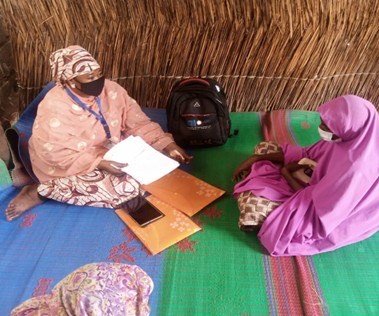
One-on-one counselling sessions are taking place in a safe space where survivors receive emotional support from lay counsellors.
Counselling on wheels
Between 2012 and 2015, Dr Fatima Akilu designed the first programme to counter violent extremism in Nigeria. After her resignation, she and her team created the Neem Foundation in 2016 to continue the work.
“There were a lot of programmes we wanted to continue and other areas that we were not able to explore while in government because there was so much that we were doing, for instance we didn’t do [counselling ] when we were in government because we were busy rehabilitating and reintegrating senior members of Boko Haram and other community provision and resilience programmes.”
Counselling on Wheels provides free weekly trauma care to conflict areas using keke. Tricycles make it easier for counsellors to navigate to ‘last mile’ and fragile communities.
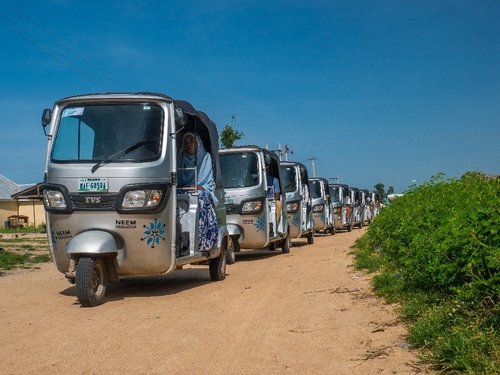
The Neem team travels by tricycle into a remote community, demonstrating the mobile model of Counselling on Wheels — bringing care directly to those who need it most.
“In the beginning, we were not convinced of how [Counselling on Wheels] will help us but later on we saw that it’s for our good. We started implementing their advice to stop infighting and embrace peace,” said 50-year-old Mrs Kaltum Yakubu.
Mrs Kaltum survived a 2019 Boko Haram attack in Baga village. She reflected on how the trauma left her depressed and antisocial until she was counselled:
“They gave us back our lives. If not because of them, I wouldn’t be able to do this interview, because of their activities, I can now talk and have confidence despite what has happened in the past.”
Aside from personalised counselling, the project also conducts collective trauma care. Participants are split into four support groups, using arts and theatre as therapeutic tools. There’s a group each for women, men, adolescents and children.
“[Counselling on Wheels] has given us inner peace and we now know we are not alone. They helped us remove fear and high blood pressure, we now have hope that we can be elevated from this situation while living our life the way we see it” Bulama said.
Counselling on Wheels has supported over 25,000 people in conflict areas since 2017. They have also trained and deployed more than 200 local conflict and peace counsellors.
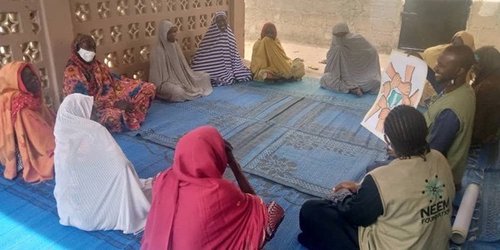
Psychoeducation session with community members, helping them understand mental health and the effects of trauma.
The problem with conflict areas and mental healthcare
This year, there has been a resurgence by Boko Haram and formation of new factions like Lakurawa.
Mr Usman Yaya, 69, said Boko Haram recently attacked Mairi Kuwait, a village in Borno state on 16 May 2025: “As they came in, they started shooting guns but we all stayed indoors, until soldiers came and killed one of the attackers and they fled.”
In situations like this, Dr Akilu has to evacuate her staff and counsellors for their safety: “Very often, I have to pull my staff out when it becomes unsafe. Protection of staff is very difficult for NGOs. When I was in government, I had more means to protect my staff.”
She noted other challenges like the lack of professional psychologists in the country, deep-rooted socio-religious norms that stigmatise mental and trauma care, and the ongoing aid fatigue in international development.
Building positive peace involves a whole-of-government and whole-of-society approach. Through an integrated community and human-based approaches, the Counselling on Wheels project is able to reach vulnerable communities who cannot afford but desperately need trauma care.
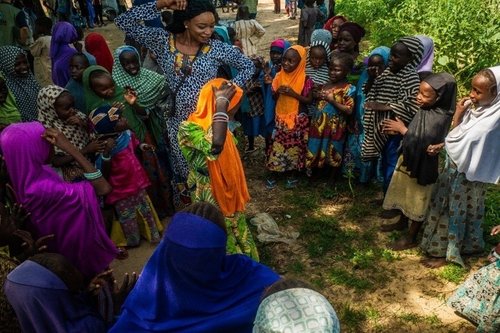
Children engaging in music and dance therapy, using rhythm and movement as a way to heal and connect.
